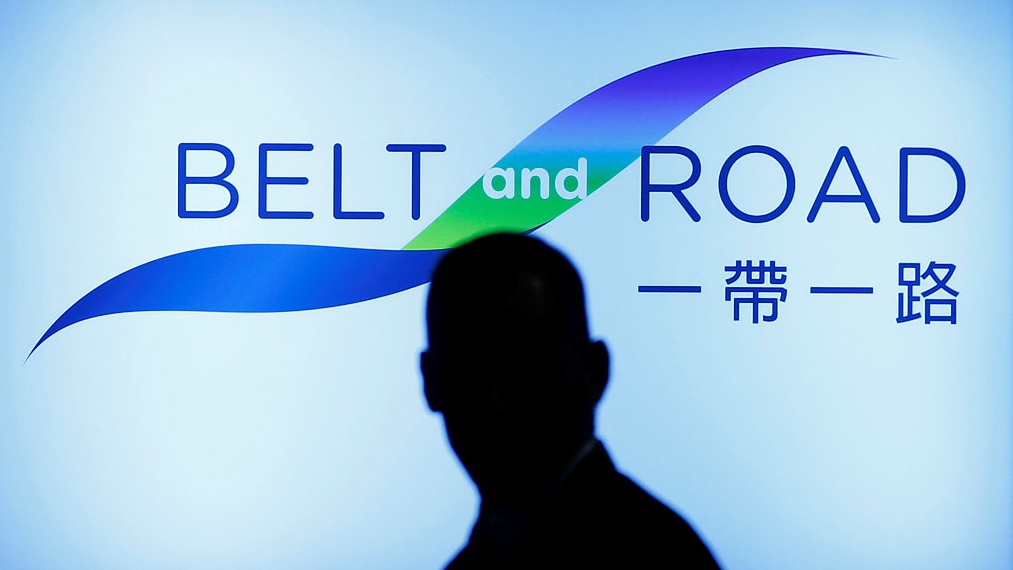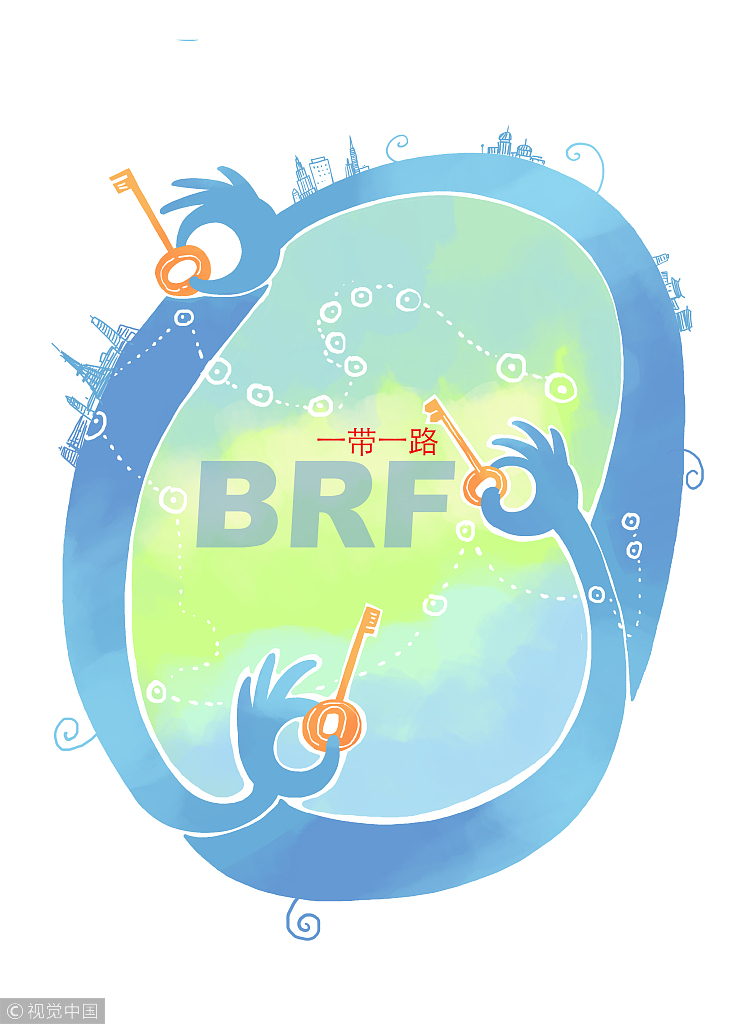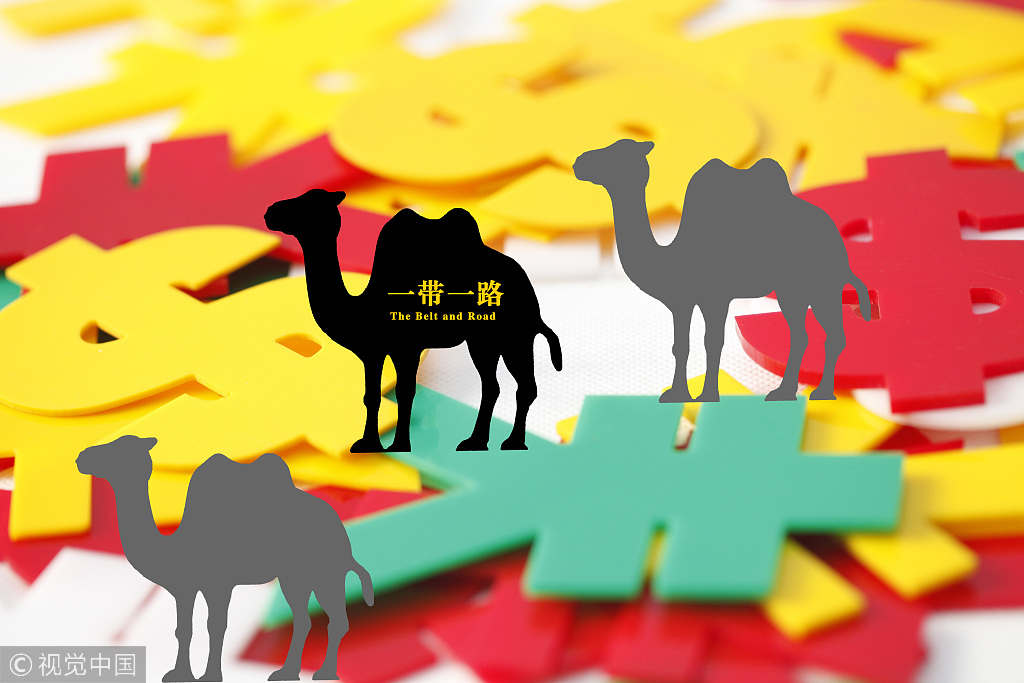
Opinion
18:08, 28-Mar-2019
'Reciprocity' is the currency of the BRI
Bobby Naderi

Editor's note: Bobby Naderi is a journalist, current affairs commentator, documentary filmmaker and member of the Writers Guild of Great Britain. The article reflects the author's opinion, and not necessarily the views of CGTN.
There has to be a reason, indeed a simple explanation, as to why over 120 countries are now involved in the Belt and Road Initiative (BRI), the biggest development project on the planet.
This is a vast system of trade exchange, guided by the principles of reciprocity, mutual trust, moral law, trade law and fundamental norms of international law.
Perhaps, this reality, this sense of fairness in trade and more is the reason why Italy joined the BRI on March 25, why France signed massive trade deals with China worth billions of dollars, and why German Chancellor Angela Merkel has described China's Belt and Road infrastructure plan as an important project that Europeans want to participate in, as well.

VCG Photo.
VCG Photo.
In her words: "We, as Europeans, want to play an active part (in the project) and that must lead to a certain reciprocity and we are still wrangling over that a bit.”
Chancellor Merkel made the statement after talks on March 26 in Paris with Chinese President Xi Jinping, French President Emmanuel Macron and EU Commission President Jean-Claude Juncker.
Juncker, who will host an EU-China summit in Brussels next month, also has reiterated EU calls for better trade reciprocity so that "European businesses could have the same degree of access to the Chinese market as Chinese businesses have in Europe."
On that note, the ‘wrangling' European leaders can go on being sure that whatever China doesn't wish for itself won't do unto the European Union, the world's biggest trading zone. The BRI has no rich members and certainly no powerful lobby groups to use money, influence and strong-arming to flip-flop infrastructure project decisions or trade policies to their liking. Such destructive practices could easily put China's credibility on the line. Such a moral failure and unilateral approach could equally go against everything the BRI is meant to stand for.
With certainty, this is the basic currency of China's global development project; a global project that relies on generalized reciprocity and benefits the interests of everyone on board. This simple ingredient, this vast network of international engagement, lubricates the belts and bolts of the BRI, all while facilitating coordination and mutual trust not just in trade and communication but in other areas as well.
The European leaders can also go on being sure that China is really at the negotiating table with no intention to seek a stronger position in trade and diplomatic talks with the EU, including their decision "to play an active part" in the BRI project.
As is often the case, Beijing seeks a fair and trust-based partnership in dealing with the EU. It has done that with its all-inclusive actions and projects thus far. It has actively championed the BRI to link its trust-based trading partnership with Southeast and Central Asia, the Middle East, Europe and Africa. This cooperation has been and still is based on global governance and reciprocity. It has worked and continues to work in all directions. And it is now all set to get the EU on board, too.

VCG Photo.
VCG Photo.
Which explains why Italy joined the BRI and why France signed lucrative trade deals with China. It happened because mutual trust and the utility of international treaties, international institutions and international law are already there. And if there are issues of concern in certain areas, they could easily be resolved through dialogue and mutual understanding.
On balance, China is not only open for business but also for dialogue. This is an ancient civilization after all. It has never annulled, un-signed or otherwise withdrew from any international agreement and mechanism. Indeed, multilateralism is the best road to take for both China and the EU. Seeing that there is no pressing need to shatter or suspend their relationships of so many years and decades.
It goes way beyond asymmetry that a tectonic shift is also taking place in the world and trade and tariff wars are just a ruse, a deliberate distraction for those who are un happy with the new world order. They want to flip this new chess board - the animating principle of their unilateral foreign policy.
The message should be amplified by now: With just one country fighting trade wars and manufacturing threats, and with many countries across the globe willing to form new trade and strategic alliances to leave the age of unilateralism behind, any monopoly on symbols of power has officially been broken. This means among other things that China and Eurozone economies can and should work together for global governance and multilateralism within the framework of BRI.
The Chinese and the European leaders know full well that their values and attitudes may be misunderstood, but mistrust, unilateralism and economic wars have consequences on the world scene. There is enough evidence to support this contention that unilateralism is indeed regarded as part of the problem for the planet.
China and the EU further realize that the international arena is rapidly turning into a multi-polar system of powers, with powerful regional actors developing in between. Those who are shortsighted, counterproductive and swimming against the tide are less and less significant in demographic, economic, and diplomatic terms.
The fact that Italy joined the Belt and Road Initiative (the first G7 country), serves as further proof that there is no reckless competitor in the BRI that needs to be checked. China is not taking advantage of its economic presence in the project to gain the upper hand in trade talks and projects. These views run deep in President Xi Jinping's administration, deep among the Chinese companies and tech giants, and now even deeper among the BRI nations.
The European leaders seem to be also waking up to this reality. It's a step in the right direction toward establishing an equal trading relationship not just between China and the European Union, but other nations as well. Such are the hurricane force headwinds going against unilateralism.
(If you want to contribute and have specific expertise, please contact us at opinions@cgtn.com)

SITEMAP
Copyright © 2018 CGTN. Beijing ICP prepared NO.16065310-3
Copyright © 2018 CGTN. Beijing ICP prepared NO.16065310-3